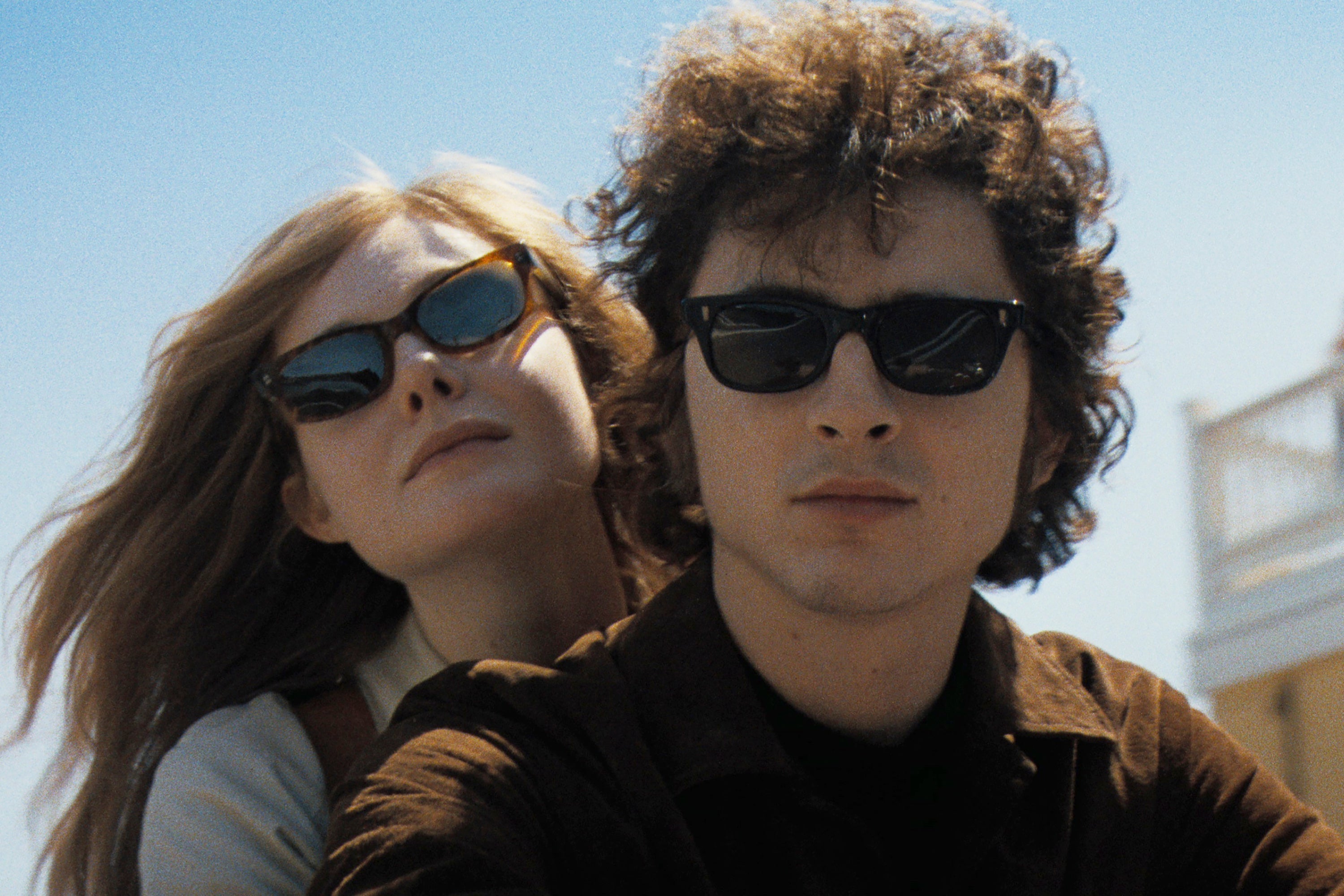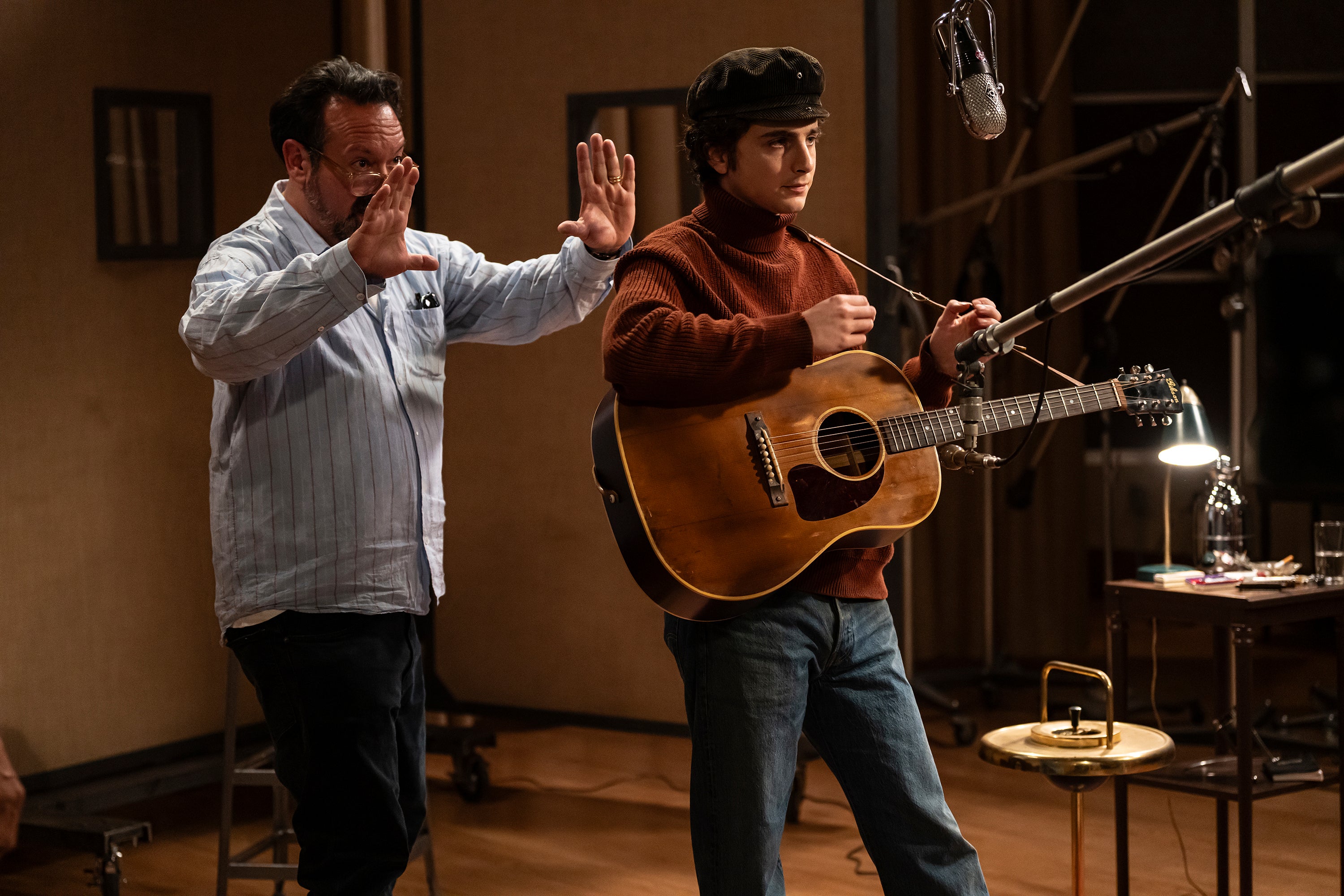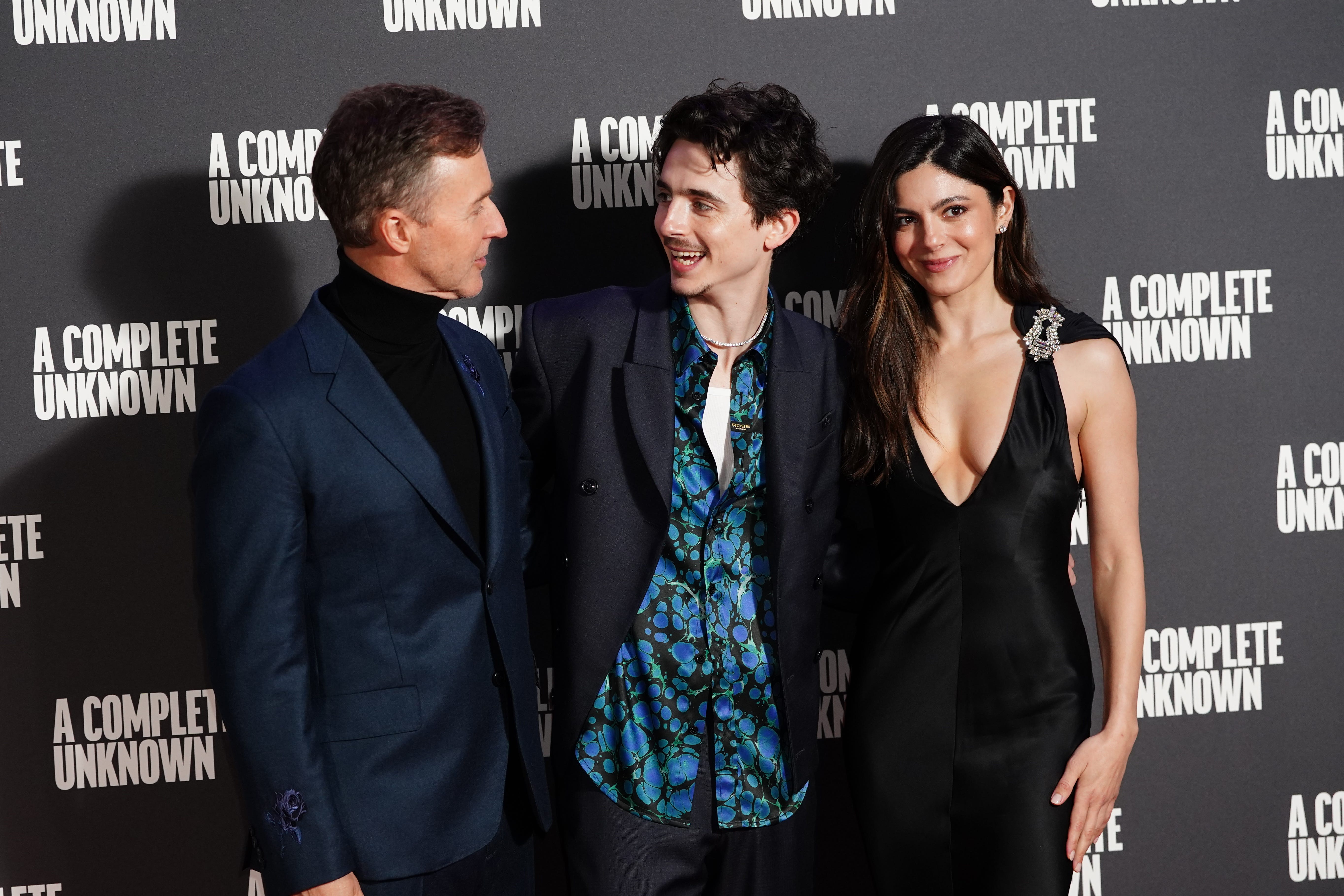
Director James Mangold has dismissed claims that Bob Dylan requested a fabricated scene in the new biopic A Complete Unknown as “fiction” stemming from a misinterpreted interview.
Prior to the UK release of the film, actor Edward Norton, who portrays Pete Seeger, suggested in a Rolling Stone interview that Dylan, having approved the script, wanted a single falsehood incorporated. This remark was subsequently interpreted as confirmation of a deliberately inaccurate scene within the movie.
However, Mangold clarified to the PA news agency that this was a misunderstanding, stating that the claim is “not a true story”.
He said Dylan “never asked for some fictional scene to be stuck in the movie”, adding: “Edward Norton, in an early interview, said that Bob asked for one untrue thing put in, but it was simply he wanted to change the name of his girlfriend from (real-life artist) Suze (Rotolo) to the character Sylvie Russo, (played by Elle Fanning), that was it.
“But anyone can disbelieve me and search about for whatever fiction they think meets the criteria of the story.”
A Complete Unknown has been nominated for eight Oscars and six Baftas, with best actor nods for Chalamet, best supporting actor for Norton, and adapted screenplay for Mangold and Jay Cocks.

Mangold also said that portraying Dylan in the film as being untruthful about his background was “complicated” because the singer-songwriter was only 19 “when he was telling these first stories about his life out on the rails or working for a carnival or a circus”.
He said a teenager could not know he was “about to become a worldwide sensation in 24 months” and those stories would be “examined under the microscope of a huge media apparatus”.
“It seems almost the number-one requirement we ask of (music stars) is that they somehow seem born onto a stage with a kind of miraculous story of destiny,” Mangold added.
He also said he does not “necessarily agree” that Dylan comes off as a “brat” in Chalamet’s portrayal, despite seeming aloof during his relationships with women – and the folk community – as the film delves into the backlash the Nobel Prize-winner faced when he started using electric instruments.

Mangold said: “Every relationship in your life when you’re met with early success like that can suddenly turn and become transactional, as indeed it was for Dylan.”
The director claimed that “Seeger needed him to promote the folk music world”, while US folk singer Joan Baez, played by Oscar-nominee Monica Barbaro, “could not write songs like him”, and “others, like (folk recordist) Alan Lomax, wanted him to support the movement at all costs”.
“If everyone in your life has an agenda, it only makes sense that you start to separate, or get aloof, or disconnect, or compartmentalise in some way that you can still function amid all that pressure,” he added.

Mangold said Dylan had told him of the “loneliness he felt during this period of his life, that he felt alone writing the songs, alone in the green room before he went on, alone in the spotlight, on the stage, alone when he went home alone” and “alone with the public”.
Dylan had also told him his “prime motivation for wanting to have a band was feeling just without any mates, feeling like everyone in his world wanted something”.
He added that it was a “pretty heavy burden” to carry as a young man who was creating influential songs, including 1962’s Blowin’ In The Wind and 1964’s The Times They Are A-Changin’, and at the same time “win a congeniality trophy”.
Mangold, who has been nominated for his first directing Oscar for A Complete Unknown, has previous Academy Award nominations, including best picture for sports biopic Ford Vs Ferrari, and adapted screenplay for superhero movie Logan.
But asked if he had been surprised not to earn a nomination for directing Johnny Cash biopic Walk The Line in 2005, he said: “I can’t unlock the mysteries of why different awards groups nominate what they nominate.
“The vagaries and strange winds that blow every year are not only impossible to figure out but best not thought about.
“You should enjoy it when it happens and try and let it go when it doesn’t.”







